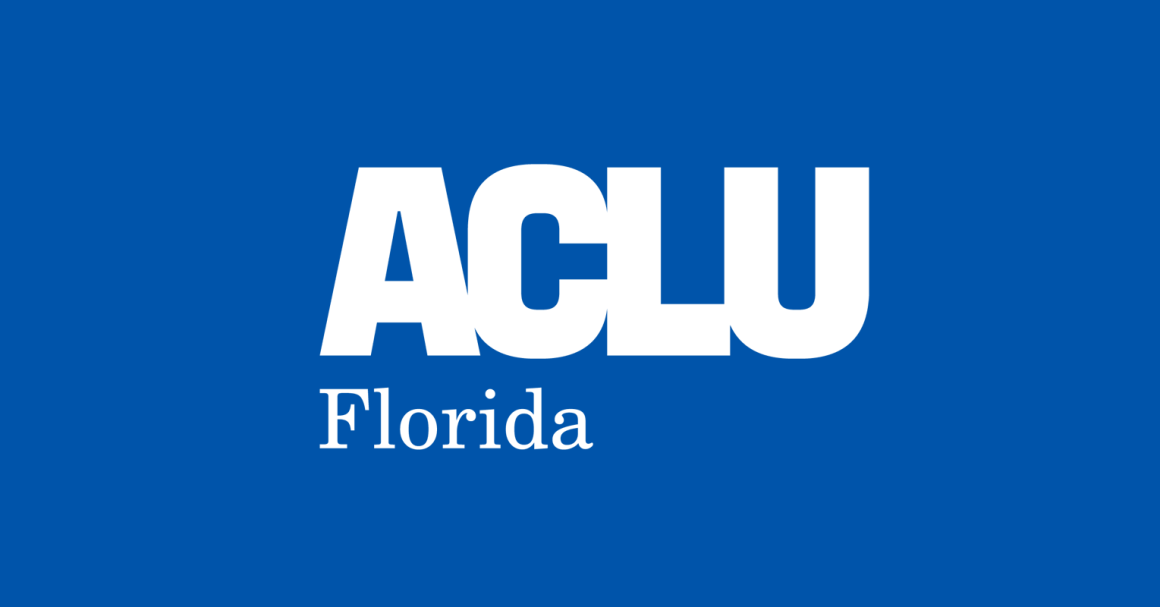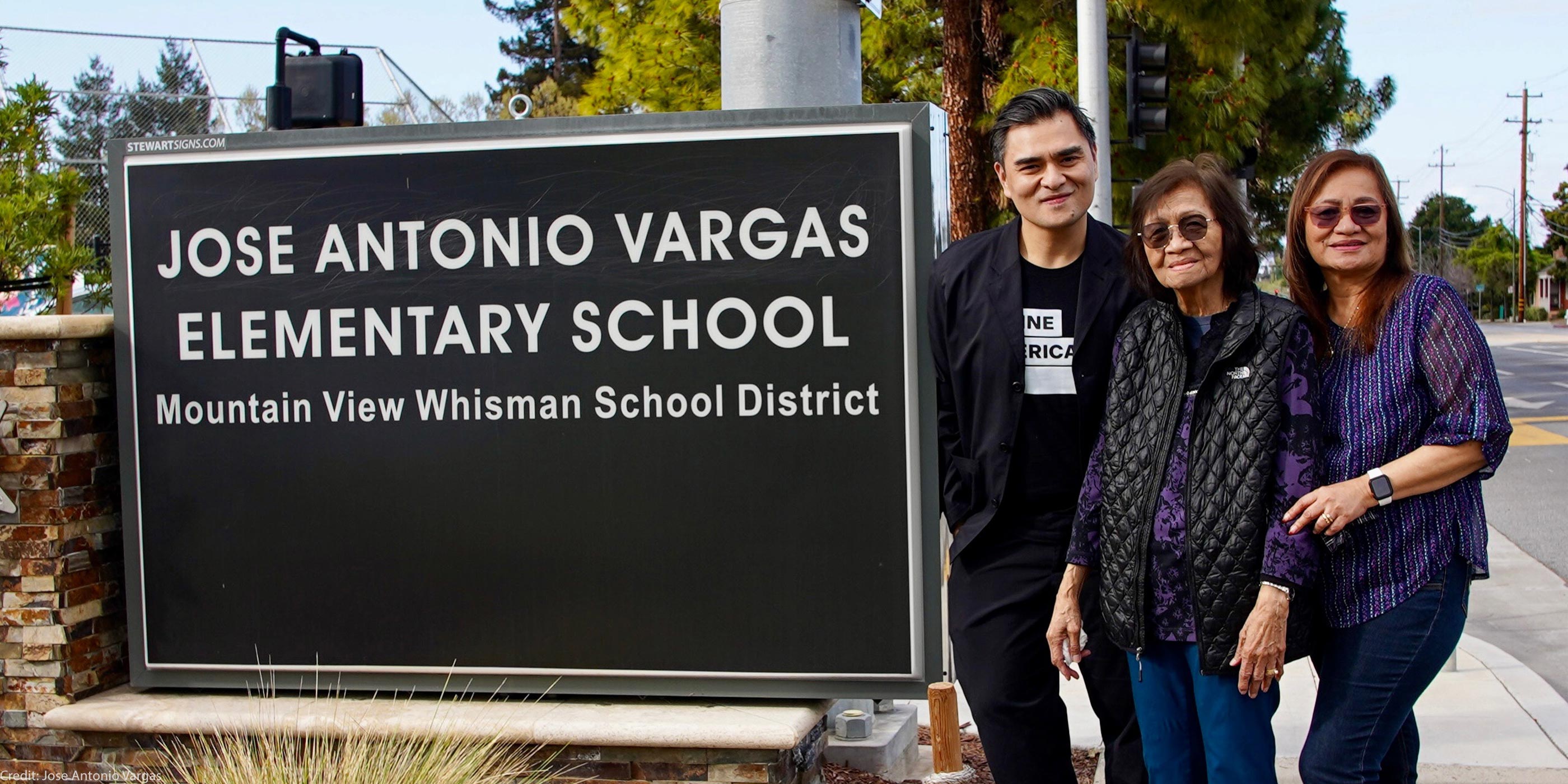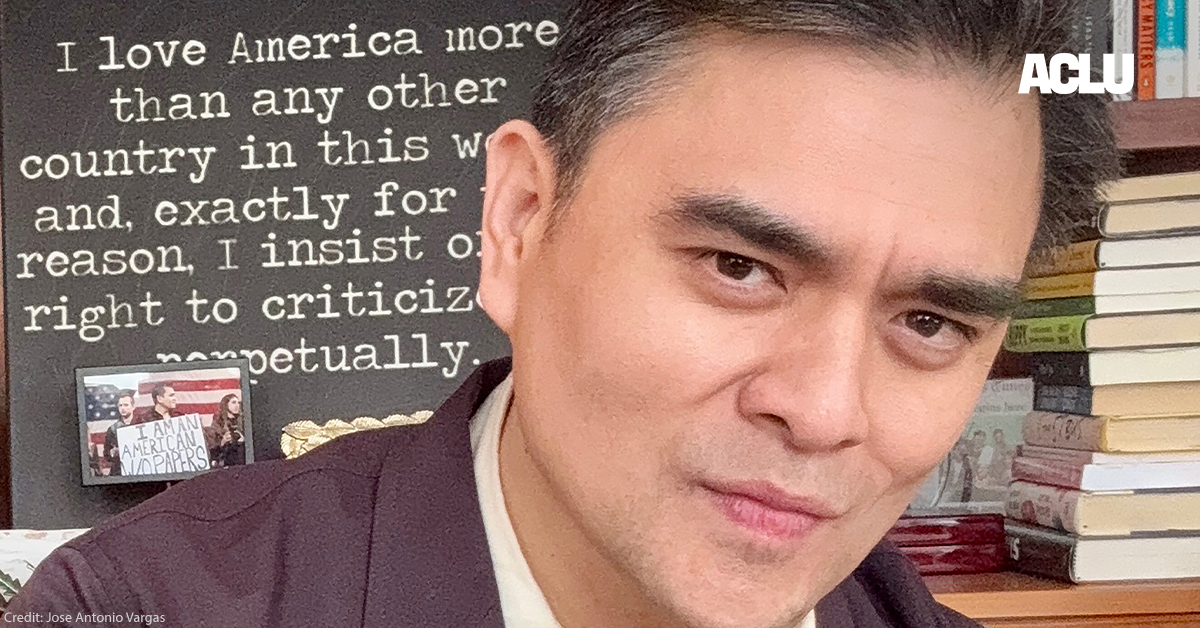This Mother’s Day was the first one that Jose Antonio Vargas celebrated with his mother in person in 32 years. It was also the first one his grandmother, who immigrated to the states in 1984 and helped raise Vargas from the age of 12, had celebrated with her daughter in as many years.
“I don’t have language for what [the reunion] was like,” says Vargas, a Pulitzer Prize-winning journalist and immigrant rights activist. “There are just no words.”

Credit: Jose Antonio Vargas
Born in the Philippines, Vargas was sent to California to live with his grandparents, who were naturalized U.S. citizens. Though raised in America, Vargas remained undocumented and spent more than three decades without legal status. That changed this year after he took the significant risk of leaving the country to be processed for reentry with no guarantee he’d be allowed back in.
Christmas night 2024, Vargas drove from San Diego to Tijuana, Mexico. It was the first time he had left the U.S. since he arrived more than 20 years ago. After risking deportation by leaving, Vargas was eventually granted a temporary non-immigrant O visa for individuals with “extraordinary ability” — the same category once held by former First Lady Melania Trump.
“I would argue that all undocumented people in Trump’s America require extraordinary ability — and resilience — just to survive,” he says.
For Vargas, immigration isn’t just personal, it’s foundational to the American experience. In conversations with people across the country, he has encountered widespread misconceptions about how the immigration system works.
“People ask, ‘Why don’t you just get legal?’ as if it’s as simple as flipping a switch,” Vargas says. But legal pathways are narrow, costly, and often unavailable, even for those with U.S. citizen relatives or long-standing ties to the country.
Below, Vargas shares with the ACLU five common misconceptions that he’s encountered in his experience as an immigrant rights’ advocate – and how he’s fighting for change.
Everyone Can Get a Green Card or Visa
The U.S. offers green cards through just a handful of narrow paths: refugee status, the diversity visa lottery, family or employer sponsorship, or for people with extraordinary skills or wealth. These options are either highly competitive, extremely limited, or out of reach for most people.
For example, the diversity lottery only accepts a small number of applicants and excludes many countries entirely. Most family sponsorships have decades-long wait times. Employer-based green cards are usually reserved for people with advanced degrees. And marriage to a U.S. citizen doesn’t bypass the system—it requires financial sponsorship and, for those who entered unlawfully, can mean a three- or 10-year bar from re-entering the country.
The reality is that even when someone qualifies, long backlogs and strict caps often make immigration impossible. It’s not just difficult; it’s often not an option at all.
Being Undocumented Is a Choice
It’s a common assumption that people who are undocumented have ignored legal paths. But we know that many legal paths to citizenship are, in fact, blocked, crowded or impractical. When someone’s survival is at risk, waiting years for a visa isn’t realistic. Many come because they have no other option—and they often try to fix their status later, only to face bans, income requirements, or rejection.
Around one in five undocumented people are Dreamers—brought here as young kids, raised in the U.S., and often unaware of their status until they’re older. For them, and for many others, being undocumented isn’t about ignoring the rules, it’s about surviving a system that offers no real way in to the only place they’ve ever known as home.
Marriage Guarantees Legal Status
There’s a common misconception that marrying a U.S. citizen automatically leads to legal residency. It doesn’t. The process is complicated, and for many, it’s filled with risks.
If someone entered the U.S. without a visa and stayed more than six months, they can be barred from returning for three or 10 years if they leave to attend their green card interview abroad. That puts families in an impossible situation: stay together without status, or be separated for years. Even when the bars don’t apply, the process takes time, money, and documentation. The citizen-spouse must prove they can financially support their partner, and both must go through background checks, interviews, and legal filings.
Marriage can be a path, but it’s not simple, fast, or guaranteed. For many mixed-status couples, it’s a stressful, uncertain process with no clear outcome.
Immigration Policy Has Nothing to Do With Race
Much of today’s anti-immigrant rhetoric is rooted in fear of demographic change, especially when it comes to immigrants from nonwhite countries. After 2016, my nonprofit, Define American, studied top anti-immigration content on YouTube. Many of the most-watched videos promoted the “Great Replacement” theory: the idea that immigration is meant to undermine white political and cultural power. Once a fringe belief, it’s now echoed in mainstream political messaging.
Terms like “invasion” have been used widely in political campaigns and media coverage, fueling fear and dehumanization. This kind of rhetoric shapes public opinion and justifies harmful policies, including mass deportations and family separations. If we want fair and humane immigration policies, we have to address how racism continues to shape the conversation.
"Too Many" Immigrants Saps Resources
Immigrants play a critical role in the U.S. economy and communities. They make up about 18 percent of the workforce, contribute more than $3 trillion to our gross domestic product, and pay more than $500 billion in taxes each year.
They also fill jobs in industries with ongoing labor shortages, like agriculture, construction, and elder care. In health care, immigrants make up a major share of doctors, nurses, and home health aides, keeping essential systems running, especially during crises like the COVID-19 pandemic. Beyond the labor force, immigrants open businesses, create jobs, and support public services through taxes. As the U.S. population ages, we’ll increasingly rely on immigrants to sustain economic growth and meet basic workforce needs.
These are not people taking from the country—they’re helping it move forward. Policies that restrict their ability to stay and contribute don’t just hurt them—they hold all of us back.
An updated edition of Vargas’ memoir, “Dear America: Notes of an Undocumented Citizen,” which reflects even more deeply on how the rise of mis- and disinformation is reshaping how we think about immigration and fanning of anti-immigration sentiment, is available now.


